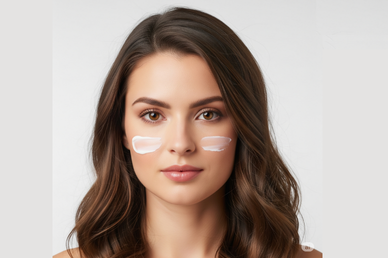Is Sunscreen Harmful? Does It Cause Cancer? What Does Science Say? | Aloanne
24-05-2025
12:49

Is Sunscreen Harmful? Does It Cause Cancer? What Does Science Say? | Aloanne
Is sunscreen harmful? Does it cause cancer? These questions, which we frequently encounter on social media, are unfortunately often filled with misinformation. However, the effects of ultraviolet (UV) rays from the sun on the skin have been scientifically researched for years, and sunscreens have been developed to protect against these harmful effects.
In this article, we explain in simple but scientific language what really happens to your skin when you don't use sunscreen, from blemishes to premature aging, from hormone production to permanent damage.
How Does Sun Exposure Affect Skin?
When your skin encounters sunlight, it activates defense mechanisms to protect itself. Chief among these is the production of melanin.
What is Melanin?
Melanin is the skin's pigment. When exposed to UV rays, the skin produces more melanin. The goal is to absorb the sun's rays and prevent DNA damage. Therefore, tanning is essentially the skin's way of defending itself.
But this system has its limits:
Melanin production provides limited protection.
Prolonged or repeated UV exposure overcomes this protection and damages skin cells.
Additionally, as we age, the skin's ability to produce melanin decreases, meaning its natural sun protection mechanism weakens.
What Happens When You Don't Use Sunscreen?
The skin is forced to constantly produce melanin.
This causes hyperpigmentation , or permanent sun spots, on the skin.
Melanin production decreases with age.
After age 35, melanin levels drop, weakening skin protection. This increases signs of aging, such as blemishes, wrinkles, and sagging .
UV rays cause DNA damage.
This damage prevents cells from multiplying normally and, over time , increases the risk of skin cancer.
Collagen destruction begins.
UV rays break down collagen, the protein that gives skin firmness and elasticity. The result: sagging, fine lines, and deep wrinkles.
Physical vs. Chemical Sunscreens: Which One Is Right for You?
Two terms are frequently encountered when choosing sunscreen: physical (mineral) filter and chemical filter.
Sunscreens with physical filters form a protective layer on the skin, neutralizing UV rays by reflecting them. Examples: zinc oxide, titanium dioxide.
Sunscreens with chemical filters absorb UV rays and convert them into harmless heat. They are absorbed by the skin.
Physical filters are generally more suitable for those with sensitive skin and babies.
Is It Necessary to Use Sunscreen While at Home?
Yes. Because UVA rays can pass through glass, you're still exposed to the sun indirectly, whether you're at home or in the car, which can cause spots and aging.
A lightweight, colorless SPF 30 sunscreen can be preferred to protect against sunlight coming from windows, especially when working at the computer.
How Often Should Sunscreen Be Reapplied?
If you only put on sunscreen in the morning and go out, you are not providing adequate protection.
It should be renewed every 2 hours ,
It should be reapplied after swimming, sweating or using a towel.
The perception that applying SPF 50 will be enough all day is incorrect. The SPF value indicates the level of protection, not the duration of protection.
What Does SPF Mean? What Should It Be?
SPF 30 blocks 97% of UVB rays;
SPF 50 blocks 98%.
For daily use, at least SPF 30 should be preferred, and SPF 50 should be preferred in the summer months and for sensitive skin.
Sunscreen Use in Children
Direct exposure to the sun should be avoided in babies under 6 months.
After 6 months, sunscreens with physical filters can be used.
Because children's skin is thinner, sun damage can be permanent.
Reef Safe Sunscreens
Environmentally friendly sunscreens are especially recommended for those swimming in the sea. Some chemical filters (oxybenzone, octinoxate) can harm coral reefs.
Creams that carry the phrase "Reef safe" protect your skin and do not harm the marine ecosystem.
What Does Aloanne Recommend?
Your skin is your greatest defense against external factors. Protecting it properly makes a big difference in your long-term health and aesthetics.
Sunscreens available on Aloanne.com:
* Provides broad spectrum UVA and UVB protection,
* Contains special formulas for skin prone to blemishes,
* It is hypoallergenic and does not clog pores,
* Offers options specific to age and skin type.
Conclusion : Sunscreen is not harmful, it is a lifesaver.
Your skin tans in the short term, but in the long term it becomes stained, loses its elasticity and ages.
Melanin production decreases over time; your skin becomes unable to protect itself.
Sunscreen provides a helpful support to this natural process, not an enemy.
Start protecting yourself today with the right information.
Discover sunscreens suitable for your skin at Aloanne.
Beware of Information Pollution
Remember, not every content shared on social media may reflect the truth. When making decisions about skin health, it's best to consult scientific sources and dermatologists.
Instead of relying on hearsay, make informed choices by researching and using reliable ingredients. Your skin deserves this kind of care.
